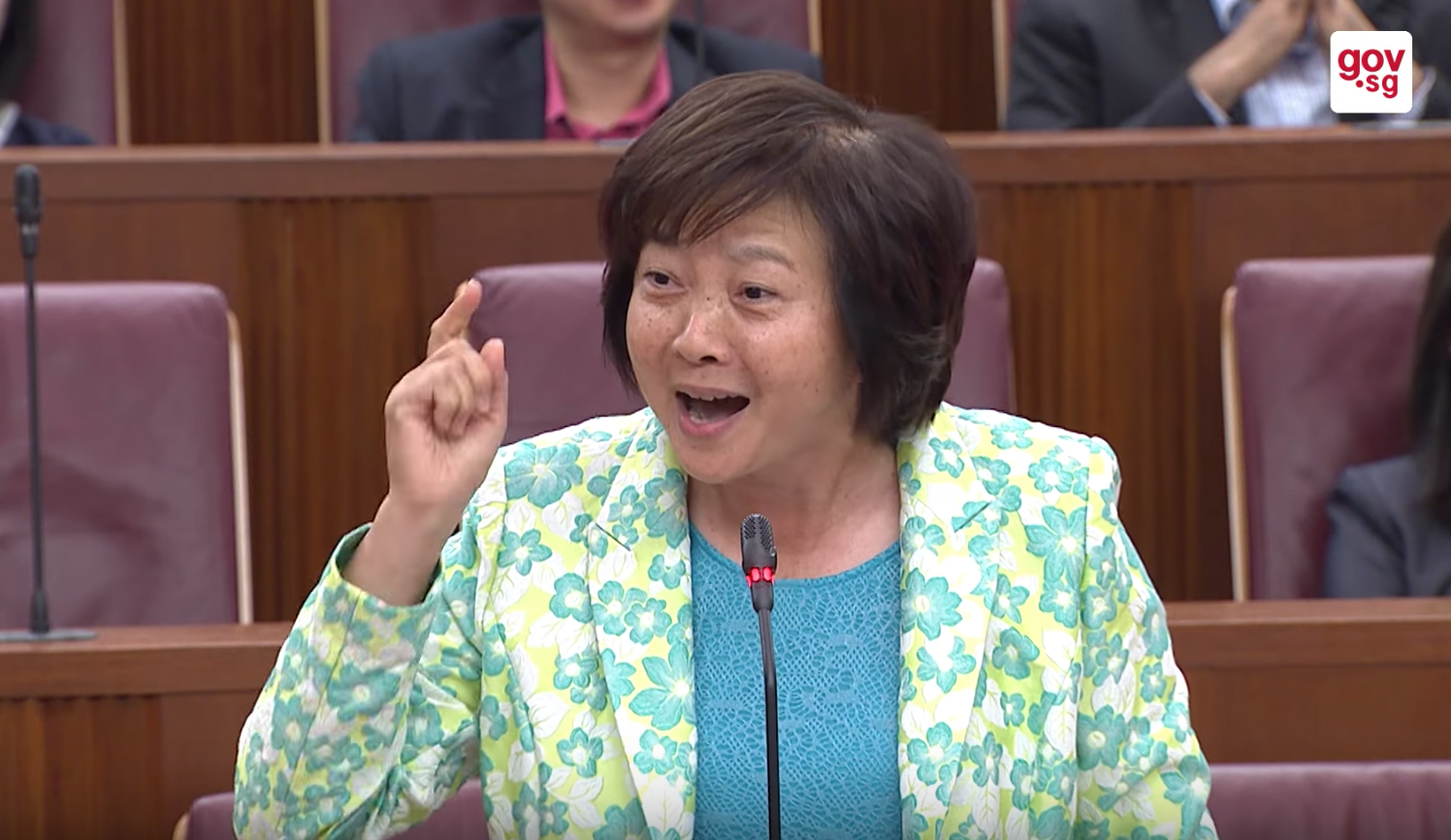The Budget debate got more exciting in 2018. By a bit.
PAP MP for Nee Soon Lee Bee Wah critiqued Workers’ Party (WP) Assistant Secretary-General Pritam Singh's suggestion in doing away with the GST hike in a rather dramatic fashion: She channelled her coffee shop auntie spirit in Parliament so that even a layman can understand.
Quick Recap: WP MPs against GST hike
In case you (like me) have been living under a rock where the Parliamentary debates broadcasts can't reach you, here's a quick refresher on what has been going on:
- Pritam announced that WP will not be able to support the planned Goods and Services Tax (GST) hike from 7 per cent to 9 per cent.
- The reason being that Pritam said the government has not yet provided sufficient clarity on what it would need the additional money for.
- Pritam has proposed that instead of raising the GST, the government could look at alternative measures such as Net Investment Returns Contribution (NIRC), and land sales.
Here's that story in full:
Other MPs strike back
Being a "relatively radical" idea, it was met with rebuttals in Parliament.
Mountbatten SMC MP Lim Biow Chuan, Holland-Bukit Timah GRC MP Christopher de Souza, and Lee took issue with Pritam's suggestions.
Lee's rebuttal was especially colourful, as she narrated a fictional story intended as a metaphor.
Basically, most of her argument was a story delivered in Mandarin illustrating why she felt Pritam's suggestion would not hold.
Here it is translated into English:
This is a conversation between a housewife and her husband. The wife said: "Dear, dear, my mum is already old, she needs to go for checkups frequently. Our kids are growing up and undergoing puberty, I need to buy more meat to feed them. I need more allowance."
The husband replied smiling: "No problem no problem, I haven't told you some good news actually. Early last Saturday, I saw our MP's car at the CC. He had driven there before 8.am. I saw that his car plate number, 4188, a good number."
[in Hokkien] "So I bought 4D — all 12 permutations of that number. Guess what? The next day, I struck first prize! [The winning number was] 8481, and it earned me $2000 per every $1. My pockets are now lined with a few thousand dollars more."
The wife stared at her husband. She said: "I want an allowance that is given to me on a regular basis and not one-time off payout. Does it mean that if you don't strike top prize, my mother doesn't need to see the doctor? If you don't strike 4D, will our children not need to eat?
The husband said: "No problem! we can still sell our house!" That is the Worker's Party, (and) Mr Pritam Singh's stance as said earlier.
Due to an ageing population, the government's expenditure's is always going up. No problem, land sales can solve the problem.
My residents have thoughts on this matter. Last Saturday, when I was doing my rounds when a resident told me: "Sister Flower (a term of endearment addressing Lee), you must remember, [in hokkien] even a golden mountain can be eaten up completely, so please do not spend your ah gong's savings thoughtlessly. Don't let us become good for nothing.
[in English]Mr Deputy Speaker Sir, I support the budget."
Akin to spending recklessly
In other words, Lee is explaining that land sales are essentially like selling off the house to feed the family -- which represents Singapore -- and their growing needs.
The added illustration of the resident's warning to Lee is perhaps a metaphor for saying that using land sales to raise government revenue may lead to using up a "gold mountain", and spending inherited wealth recklessly.
Parts of the story would be a bit odd if we tried to view it solely within its narrative, such as winning first prize for 4D, for example.
Not reckless, but flexible?
Previously, Pritam mentioned that using land sales could potentially give the government flexibility in its spending needs, instead of taking the position that all spending proposals are “tantamount to raiding the reserves”.
Additionally, he clarified that the abuse of land sales can be avoided by putting a cap on earnings used for spending, like 20 per cent of land sales for that year, or 20 per cent of average land sales over 20 years, whichever is lower.
However, the argument for not using land sales to be prudent is once again echoed in De Souza's comments.
De Souza countered that both measures he suggested can be exploited by selling more land in order to increase the amount immediately accessible for spending:
"The point here is that we do not want to build in a formula which promotes indiscriminate or rash sales of land to increase revenue for immediate spending.
The suggestion on 20 per cent of land sales for that year does not solve that issue. Neither would value of average land sales over 20 years resolve that issue as
1) land sales revenue can fluctuate over a long period of time and
2) even if it is pegged to the average land sales over 20 years, this average can be pushed upward each year through more and more sales.
Hence instead of building in a formula which promotes possible indiscriminate quick sales of land to increase revenue for immediate spending, it is more fiscally prudent to allow land sales to form part of the reserves, and then investing those reserves to achieve healthy NIRC."
Top image via Gov.sg's YouTube video
If you like what you read, follow us on Facebook, Instagram, Twitter and Telegram to get the latest updates.
